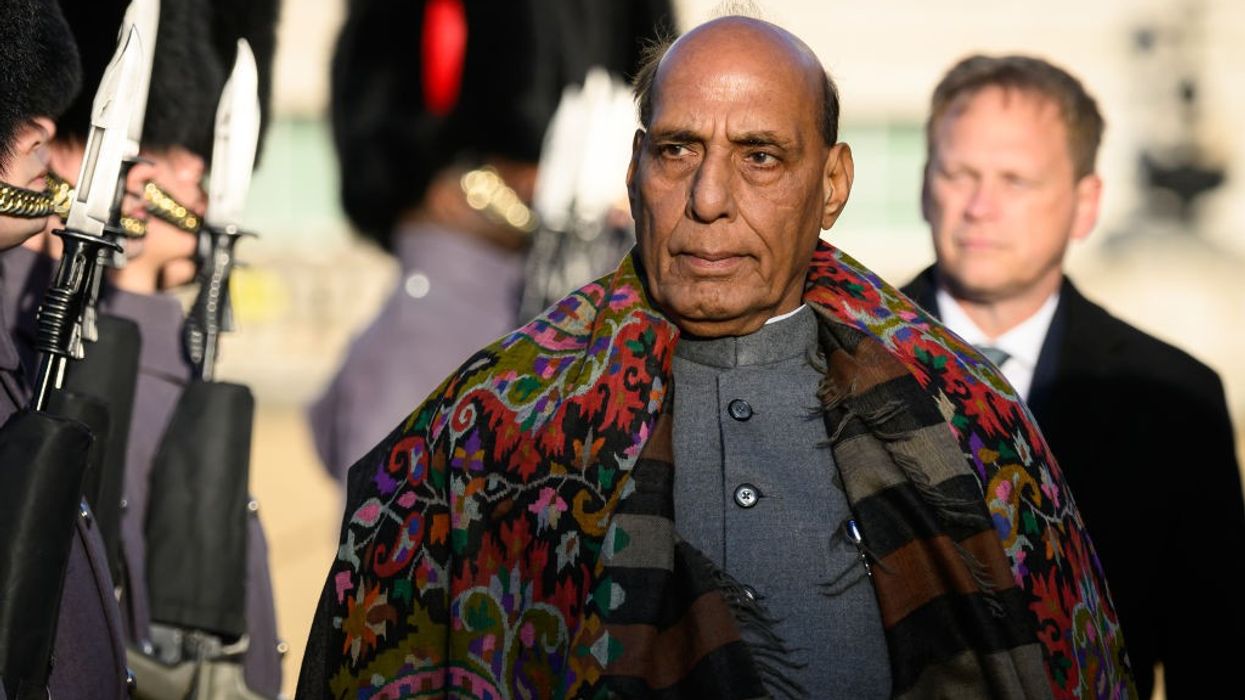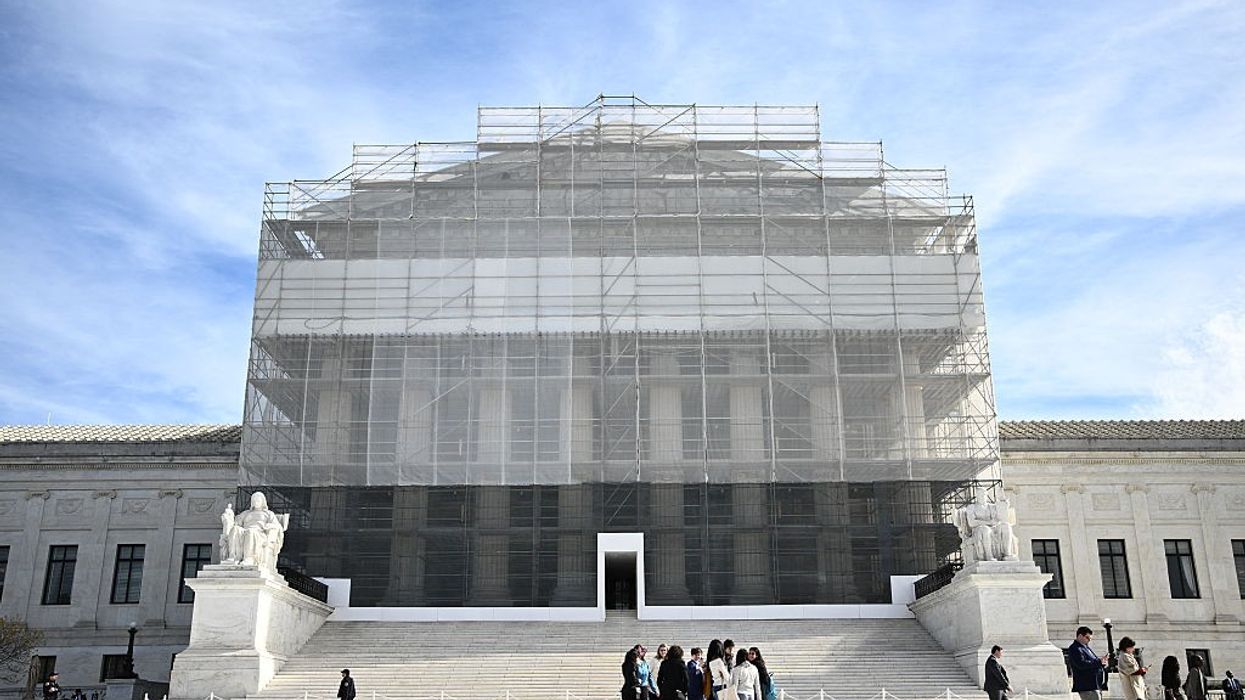PRIME MINISTER Narendra Modi Saturday underlined the need for swift justice in cases involving crimes against women and said that it will give them greater assurance of their safety.
Modi also said the judiciary is considered a guardian of the Constitution, and that the Supreme Court and the judiciary have lived up to the responsibility.
Addressing the inaugural session of a national conference of the district judiciary in the presence of Chief Justice of India D Y Chandrachud, Modi said the people of India have never shown any distrust of the Supreme Court or the judiciary.
Describing the imposition of the Emergency as a "dark" period, the prime minister said the judiciary played a key role in upholding fundamental rights.
On matters of national security, Modi said, the judiciary has protected national integrity by keeping national interests paramount.
Against the backdrop of the alleged rape and murder of a doctor in Kolkata and the sexual assault on two kindergarten girls in Thane, he said atrocities against women and the safety of children were matters of grave concern for society.
"The faster justice is delivered in cases of atrocities against women, the greater assurance half of the population will have about their safety," the prime minister said.
Modi said there were several stringent laws to deal with crimes against women and there was a need to ensure better coordination among the criminal justice system to ensure swift justice.
'District judiciary crucial'
In his address, Justice Chandrachud termed the district judiciary the "backbone of the judiciary" and said it is a crucial component of the rule of law.
He said it was necessary to stop calling district judiciary 'subordinate'.
"The district judiciary is the first point of contact for a citizen in search of justice. The district judiciary is a crucial component of the rule of law," Justice Chandrachud said.
He said the quality of work and the conditions in which the judiciary provides justice to citizens determine whether they have confidence in the judicial system.
"The district judiciary is therefore called upon to shoulder tremendous responsibility and is aptly described as the 'backbone of the judiciary'. The spine is the core of the nervous system," the CJI said.
"To sustain the spine of the legal system, we must stop calling the district judiciary as the subordinate judiciary. Seventy-five years after Independence, the time has come for us to bury one more relic of the British era – the colonial mindset of subordination," he added.
Digital records
The CJI said that in 2023-2024, 46.48 crore pages of court records have been scanned or digitised.
"The National Judicial Data Grid, managed by the e-committee in conjunction with the National Informatics Centre, is a mine of data not only for lawyers but also for citizens," he said.
Justice Chandrachud said the e-courts project has also been responsible for the computerisation of over 3,500 court complexes and more than 22,000 courtrooms.
"The district judiciary has played a crucial role in deploying technology in day-to-day affairs: district courts in the country have heard 2.3 crore cases through video conference," he said.
The CJI said judgments of the Supreme Court were being translated into every language recognised by the Constitution and 73,000 translated verdicts were in the public realm.
More women judges
Referring to data on the changing demography of the judiciary, he said an increasing number of women have been joining the district judiciary in the past few years.
"Women consisted of 58 per cent of the total recruitment for civil judges in Rajasthan in 2023. Sixty-six per cent of the judicial officers appointed in Delhi in 2023 were women. In Uttar Pradesh, 54 per cent of the appointments for civil judges (junior division) in the batch of 2022 were women," he said.
Justice Chandrachud also said that in Kerala, 72 per cent of the total number of judicial officers are women.
"These are a few examples which paint the picture of a promising judiciary of the future," he said.
Besides the CJI, Modi, Union Law Minister Arjun Ram Meghwal, Supreme Court Justice Sanjiv Khanna, Attorney General R Venkataramani, Supreme Court Bar Association president Kapil Sibal and Bar Council of India Chairman Manan Kumar Mishra also addressed the gathering.
The two-day function is being organised by the Supreme Court.
President Droupadi Murmu will deliver the valedictory address on September 1 and will also unveil the flag and insignia of the Supreme Court, a statement issued by the apex court on Friday said.
District courts overburdened: Sibal
Rajya Sabha MP and senior advocate Kapil Sibal highlighted the abysmal conditions in which district court judges work and said unless their salary and infrastructure are improved, the quantity and quality of justice delivery system will continue to suffer.
Sibal, also the President of Supreme Court Bar Association, said the fact that trial court and district and session courts are loath to grant bail in certain significant matters itself is "symptomatic of the malaise" that has set in.
While speaking at the 'National Conference of the District Judiciary', Sibal said liberty is the foundational substratum of a thriving democracy and any attempt to throttle it impacts the quality of democracy.
He referred to the chief justice DY Chandrachud often saying that court at the highest level is burdened with bail matters because bail seems to be an exception at the level of trial courts.
He spoke about some recent court verdicts which adhered to the principle 'bail is the rule and jail is the exception' and said the Supreme Court has now reiterated this principle in several recent judgements even in relation to special acts, indicating the axiom must be adhered to.
"The reason why I have emphasised on this issue is that the democratic fabric of a nation is dependent on the court's embracing the significance of liberty in the context of our polity. Liberty is the foundational substratum of a thriving democracy. Any attempt to throttle it impacts the quality of our democracy," Sibal said.
On the state of district courts, Sibal said any structure with a weak foundation will impact the edifice and eventually collapse.
He said talented young people choose not to seek appointments at district courts due to "abysmal conditions" in which the judges operate.
Many of the judges, through sheer hard work and commitment to the cause, are doing yeomen service to the nation even though they are "handicapped by the lack of proper courtrooms and office facilities, supporting staff including stenographers, library facilities at home, appropriate residential accommodation and necessary transportation facilities," he said.
"Needless to mention the meagre salary that those serving the cause of the nation draw to discharge their duties. Unless we are able to improve their conditions of work, both in terms of salary and infrastructure, the quantity and quality of the justice delivery system will suffer," he stressed.
He mentioned pension of judicial officers, their promotions, gender sensitisation, technology and incentive to join judicial services as some of the matters that must be addressed.
Sibal said he doesn't want to call the judiciary at the level of the trial court and district and sessions courts to be "subordinate" because the judge sitting there delivers justice and the question of being considered subordinate to any authority is a contradiction.
"The judiciary at that level should be instilled with the confidence that their judicial pronouncements shall never be held against them and that they represent the spinal cord of the justice delivery system.
"They should have the flexibility and the independence to render judgments in accordance with law without fear or favour. The effectiveness, fairness and integrity of the courts impacts the perception of the public on the credibility of the entire judicial system," he added.
Sibal said the roster at the district courts level is "overburdened' which not only impacts the justice delivery system but the lives of millions. The courts cannot even imagine the mental agony and the economic consequences of these kinds of delays, he said.
"I urge everyone on the dais to urgently address the persistent issues being faced by judges of the trial and district and sessions courts, who are the backbone of our judicial system. It is time for us to make our justice delivery system more efficient, stronger, and viable," he said. (PTI)














